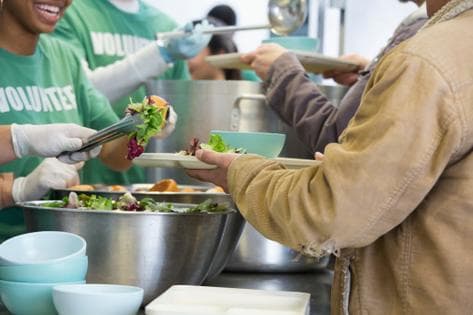One of the best ways restaurant owners can connect with their local communities is by developing a restaurant fundraising program. Typically, a restaurant will donate a portion of the sales from the specified night to the organization holding the event. These fundraisers provide a variety of benefits for restaurants and local community organizations. However, restaurant owners should follow best practices to develop the right fundraising program structure.
The Benefits of Restaurant Fundraisers
Restaurant fundraising programs are a great way to benefit local charitable organizations. If structured correctly, the events raise funds for the charity and raise the profile of the participating restaurant.
Groups looking for funds will benefit from having a turnkey fundraising solution at their disposal. Restaurant fundraisers require significantly less work than other funding events, as the organizer's primary responsibility is bringing attendees to dine at the restaurant. Event funds are delivered to the organization quickly and attendees get to enjoy great food for a good cause.
Restaurant fundraisers benefit the host location by fostering deep connections within the local community. The events also bring additional revenue and traffic to restaurants, which can be especially helpful during slower seasons. Restaurant staff often take pride in supporting local causes as well, which drives positive employee morale in the restaurant.
Best Practices for Developing a Restaurant Fundraising Program
To successfully develop a restaurant fundraising program, operators should follow this set of best practices.
- Get Connected with Local Organizations – Find the right charity in the area and reach out. School, churches, or nonprofits are all great examples. A second method is to promote your restaurant's fundraising program within your local community and see which organizations contact you. Start with organizations in a one mile radius from the restaurant and work your way out.
- Define the Event Structure – Determine the amount of proceeds you want to donate from the night of the event. Usually, a restaurant will select a percentage of sales to donate. However, some choose a tiered structure. For example, if the groups bring in $1,000 in sales, the restaurant gives 15 percent, if the group brings in $1,500 in sales the restaurant donates 20 percent.
- Give Yourself Time to Plan and Promote –Allowing 2-3 months lead time to work out all the details and promote the event will drive better results. To guarantee a great turnout, both the restaurant and the organization should promote through different communication channels such as social media, local events calendars, the restaurant's website and the local chamber of commerce. Touch base with the organization the week of the event for an estimate on the number of attendees and, if necessary, staff up for the big night.
- Showtime – Be prepared for the big night. Educate staff about the organization, set out information tables, put up signage and encourage restaurant leadership to get directly involved. Make the event memorable with one-night-only offerings like tailored menu items or specialty cocktails.
- Develop Ongoing Partnerships – Each fundraising event is an opportunity to build new partnerships with local organizations and connect with a large group of guests. Developing these ongoing relationships benefits the restaurant and positions the proprietor as an engaged, community steward. After the event, always hand-deliver the check to the organization contact and discuss plans for future or recurring events.
- Evaluate Event Success – Assess the event outcome. Look at metrics such as number of guests, total sales and money raised. Note areas of success and consider new strategies for any problem areas. Finally, meet with staff to review overall performance and get feedback. Learn from your mistakes and get better with every event.
Restaurant Fundraising is a Win-Win
Restaurant fundraising is one of the most effective ways to make a positive social impact on your local community. Great for both host locations and local community organizations, fundraisers bring money to important causes while also building deeper connections within the community.
Restaurant fundraisers are good for business and good for the world. By following the best practices above, your next restaurant fundraising event is sure to be a huge success.




